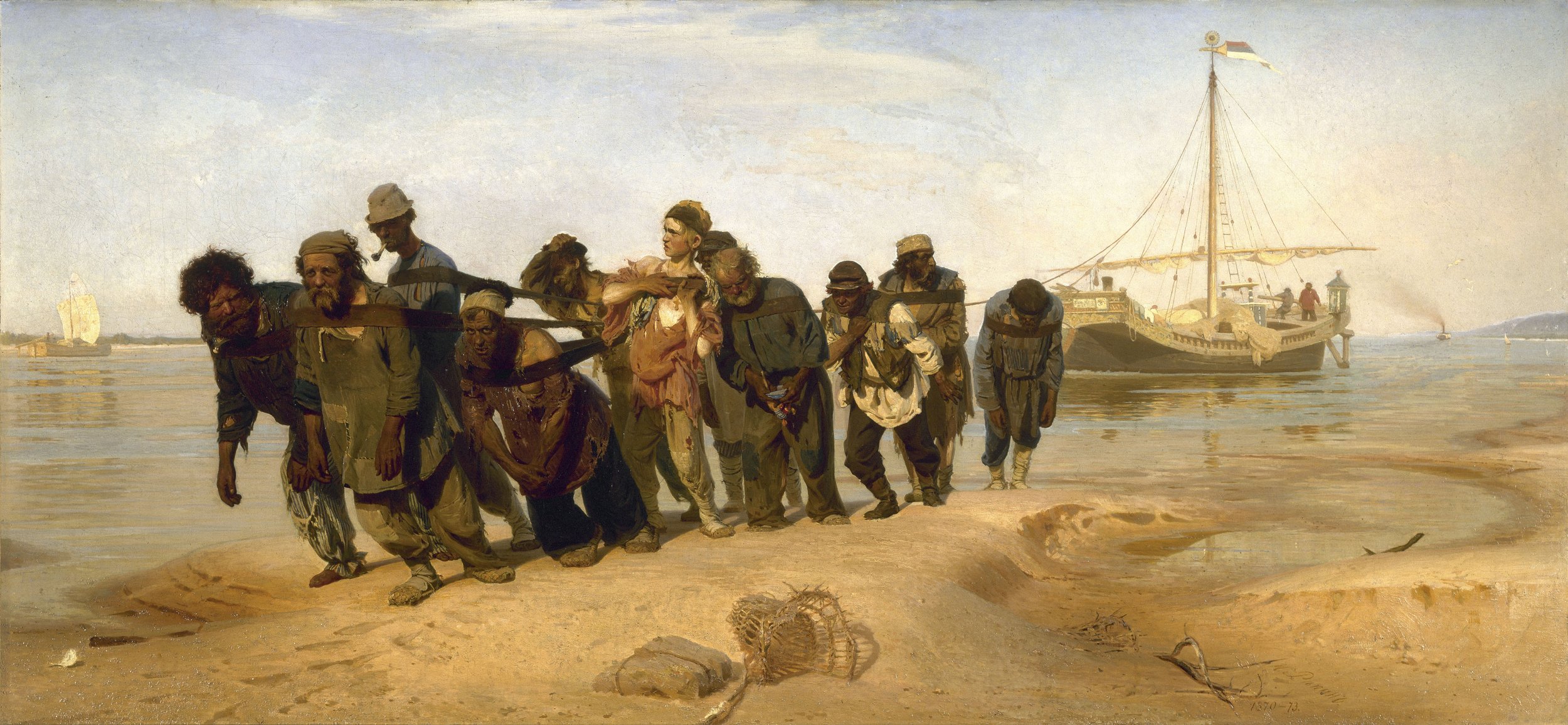PROGRAM NOTES
by: Lalita Pérez Acosta
Echoes of the Russian Soul: Tradition, Struggle, and Transcendence
Today’s program offers a sweeping journey through the rich emotional, cultural, and historical landscape of Russian music. From religious ecstasy and rural life to political resilience and personal transformation, these works—spanning sacred choral music, folk-inspired songs, and monumental symphonic expression—paint a vivid portrait of the Russian spirit through sound.
Russian Easter Overture, Op. 36
Nikolai Rimsky-Korsakov
Opening our program is Rimsky-Korsakov’s vibrant Russian Easter Overture, a celebration of resurrection and spiritual awakening drawn from ancient Orthodox chants. Written in 1888, the piece captures the ecstatic joy of the Easter service, blending litugical themes with Rimsky-Korsakov’s hallmark orchestral color. The bells, incense, and grandeur of Russian Orthodox ritual are transformed into a kaleidoscope of sound—a fitting prelude to an evening of Russian expression in its many forms.
Next, we turn to three iconic examples of Russian and Soviet folk song. Performed a cappella, these three choral works form a vivid and emotionally rich portrait of Russian and Soviet song traditions.
Song of the Volga Boatmen
Traditional, arranged by Aleksandr Glazunov
Song of the Volga Boatmen begins the set with somber dignity. Once sung by barge-haulers along the Volga River, this melody carries the weight of physical toil and communal struggle. In Aleksandr Glazunov’s choral arrangement, the harmonies remain stark and grounded, echoing the rhythm of the rowers and the vastness of the river itself.
Katyusha
Matvei Blanter, arranged by Tim Salaver
Katyusha, composed by Matvei Blanter in 1938 and arranged by Tim Salaver, offers a poignant contrast. This World War II-era song tells of a young woman singing to her beloved, a soldier far from home. Bright and rhythmic, yet deeply heartfelt, it became one of the most iconic Soviet songs—an enduring symbol of longing, loyalty, and national pride.
Kalinka
Traditional, arranged by Stan Engebretson
Kalinka, arranged by Stan Engebretson, closes the set with exuberance and flair. Though written in the 19th century by Ivan Larionov, its infectious melody and lively tempo have made it one of the most beloved "folk-style" songs of Russia. The choral setting captures its playful spirit, with building excitement and dynamic contrasts that make it a joyful finale.
Together, these a cappella choral gems, highlight the enduring resonance of Russian song—from stoic endurance to passionate love to festive release—all conveyed with the expressive richness of the unaccompanied human voice.
Ave Maria (Bogoroditse Devo) from All-Night Vigil, Op. 37
Sergei Rachmaninoff
One of the most moving pieces in the Russian choral canon, Rachmaninoff’s Bogoroditse Devo is his setting of the Orthodox "Hail Mary." Written in 1915 as part of his All-Night Vigil, the piece is known or its rich harmonies, deep spiritual intensity, and the sheer beauty of its sound. Although it was composed during the chaos of World War I, it offers a moment of timeless peace and reverence, anchoring our program in the sacred traditions that run deep in the Russian soul.
Peasants’ Chorus ("Bolyat moi nozhen’ki") from Eugene Onegin, Op. 24
Pyotr Ilyich Tchaikovsky
This charming and rustic chorus from Tchaikovsky’s beloved opera Eugene Onegin provides a light-hearted glimpse into the life of Russian peasants. This charming and rustic chorus from Tchaikovsky’s beloved opera Eugene Onegin provides a light-hearted glimpse into the life of Russian peasants. Sung at a countryside celebration, the piece contrasts with the opera’s overall dramatic tone, yet it captures the sincerity and humor of everyday people. It is in these rural voices that we find authenticity—both comedic and human—which balances the grandeur of the other works on the program.
Symphony No. 5 in D minor, Op. 47
Dmitri Shostakovich
We conclude with Dmitri Shostakovich’s Symphony No. 5, written in 1937 at the height of Stalin’s Great Terror. After his opera Lady Macbeth of Mtsensk was denounced in Pravda, Shostakovich was forced into silence and faced the very real threat of persecution or worse. The Fifth Symphony—publicly described as “a Soviet artist’s practical creative response to just criticism”—was his attempt at survival, a work that seemingly toed the party line while subtly expressing deep anguish and protest.
The first movement unfolds in brooding tension, filled with dramatic contrasts and unresolved grief. The second is a sardonic waltz, mocking rather than merry. The Largo offers one of Shostakovich’s most profound slow movements, with soaring strings and a mournful, prayer-like intensity.
The finale, Allegro non troppo, bursts forth with militaristic energy, driven relentlessly by the snare drum, which repeats a hammering rhythm that grows louder and more insistent with each iteration. To some, it sounds like triumph. But to many—especially after hindsight and testimony from Shostakovich’s circle—it reads as forced, even brutal.
Leonard Bernstein famously said that this conclusion is “the greatest cry of protest ever composed.” He described the snare drum's pounding as “calling out a victory that no one believes in,” suggesting that the audience is meant to feel not uplifted, but overwhelmed by a triumph that is hollow, imposed, and tragic.
In this light, the Fifth Symphony becomes not a submission to power, but a coded act of defiance. The very tools of celebration—brass fanfares, major chords, and military percussion—are turned inside out, used to mourn what can’t be said aloud.
Why This Program, Now
Though these pieces span different eras and settings, they speak in harmony. Whether through liturgical grandeur, humble folk melodies, satirical opera, or coded symphonic resistance, they each echo the core themes of faith, endurance, and identity. These works show us how music serves as both a mirror and a refuge—holding a nation's pain, joy, and hope across centuries.
In bringing them together tonight, we celebrate the depth and diversity of Russian musical expression—and how, across time and context, it continues to resonate with universal human truths.







